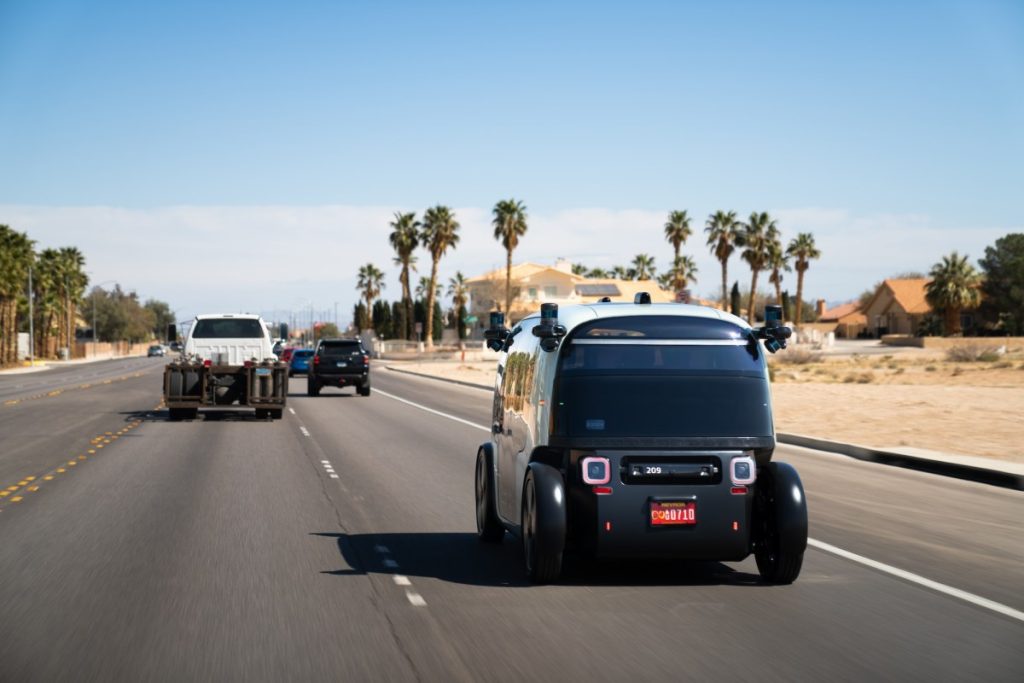In a significant development within the realm of autonomous vehicle technology, Zoox, an Amazon-owned company specializing in robotaxis, has issued its second voluntary software recall in a single month. This action follows a collision involving one of its vehicles and an e-scooter rider in San Francisco on May 8. This incident not only highlights the challenges faced by companies in the autonomous sector but also raises pressing questions about the safety and reliability of self-driving technologies.
Recent Incidents Prompting Recalls
The most recent incident took place when an unoccupied Zoox robotaxi, operating at low speed, was struck by the e-scooter. According to Zoox, the vehicle had yielded at an intersection before the collision occurred. The e-scooter rider, who suffered minor injuries, declined medical attention following the incident. Zoox has since claimed that the vehicle was stationary at the time of impact, further stating, “The e-scooterist fell to the ground directly next to the vehicle. The robotaxi then began to move and stopped after completing the turn but did not make further contact with the e-scooterist.”
Just weeks prior to this incident, Zoox issued a recall for approximately 270 vehicles after a crash in Las Vegas that raised concerns over the robotaxi’s ability to anticipate the movements of other road users. This prior incident has left an enduring impact on Zoox’s reputation and has heightened scrutiny on the efficacy of its self-driving software.
Software Updates and Safety Measures
In response to the two recent incidents, Zoox has updated its software to improve the perception tracking capabilities of its vehicles. This change aims to enhance the vehicle’s ability to detect and respond to vulnerable road users, such as pedestrians and cyclists, thereby preventing further incidents. The new update reportedly includes modifications designed to prevent the vehicle from moving when a vulnerable road user is detected nearby. Such changes are crucial in addressing safety concerns, especially in urban environments where interactions with human-operated vehicles are common.
The importance of these updates is underscored by the tragic case of Cruise, a competitor in the autonomous vehicle market. Cruise faced severe backlash when one of its robotaxis struck a pedestrian who had been thrown into the vehicle’s path by another car. The ramifications of such incidents can be profound, leading to public distrust and regulatory scrutiny. An article by TechCrunch highlighted that Cruise had to recall its entire fleet following a similar incident, demonstrating how quickly public perception can shift against companies in this sector.
Zoox has shared video footage and relevant information with regulators, emphasizing its commitment to transparency and safety. Despite these efforts, the company has not provided specific details about the number of vehicles impacted by the latest recall or how this update differs from previous iterations. This lack of clarity may raise further questions among consumers and regulators alike.
Broader Implications for the Autonomous Vehicle Industry
As autonomous vehicle technology continues to advance, the stakes are high for companies like Zoox. The public’s acceptance of robotaxis hinges not only on their efficiency but significantly on their safety. Consumer trust is a critical component; thus, recalls—especially multiple incidents in quick succession—can significantly affect a company’s market position and future prospects.
Moreover, the regulatory landscape for autonomous vehicles is becoming increasingly stringent. The National Highway Traffic Safety Administration (NHTSA) has been proactive in addressing the safety concerns surrounding self-driving technology. As Zoox navigates these challenges, it is likely that ongoing oversight from regulatory bodies will influence its operational strategies and safety protocols. The company has reached out to the NHTSA for further clarification on its recalls, but detailed feedback is yet to be confirmed.
Market Reaction
The recent recalls have had a noticeable impact on Zoox’s standing in the autonomous vehicle market. While Zoox is yet to be publicly traded, its operations are closely monitored, and any negative press can influence Amazon’s broader stock performance. Investor confidence in autonomous technology companies is contingent upon their ability to demonstrate safety and reliability. Given the fleet recalls and safety concerns highlighted in recent incidents, Zoox may face challenges in capturing market share against competitors who may appear to manage risks more effectively.
As the autonomous vehicle market evolves, the importance of rigorous testing, transparent communication, and rapid iteration on safety protocols cannot be overstated. Companies will need to prioritize these elements to ensure that innovative technologies do not come at the cost of public safety.
Quick Reference Table
| Date | Incident | Actions Taken |
|---|---|---|
| May 8, 2025 | Collision with e-scooter | Issued software update for perception tracking |
| April 2025 | Crash in Las Vegas | Recalled 270 vehicles |
| March 2025 | Reports of unexpected braking | Recalled 258 vehicles |
In an industry characterized by rapid advancements and significant challenges, Zoox’s journey is a vital case study on the balance between innovation and responsibility in technology.

